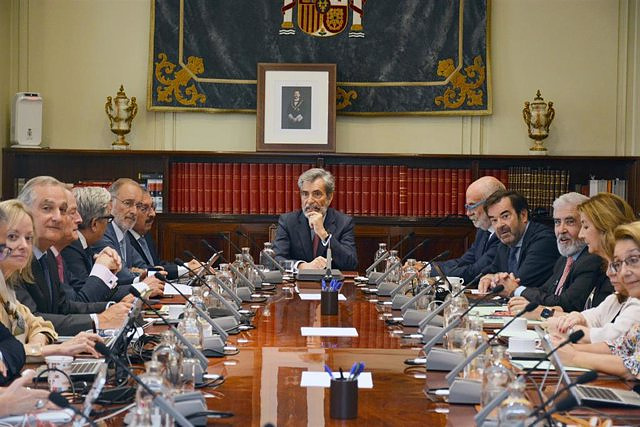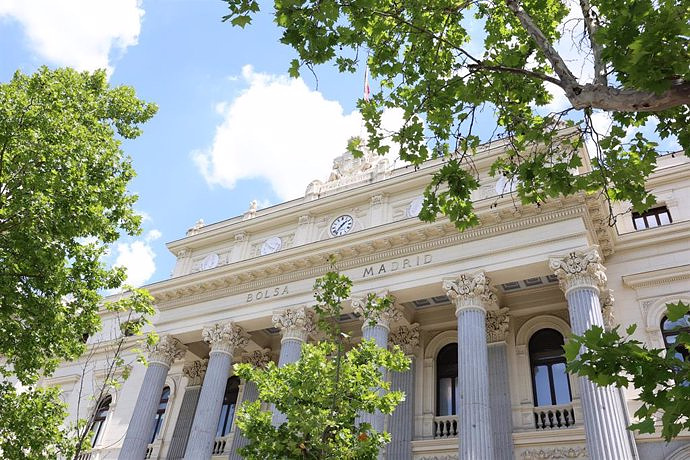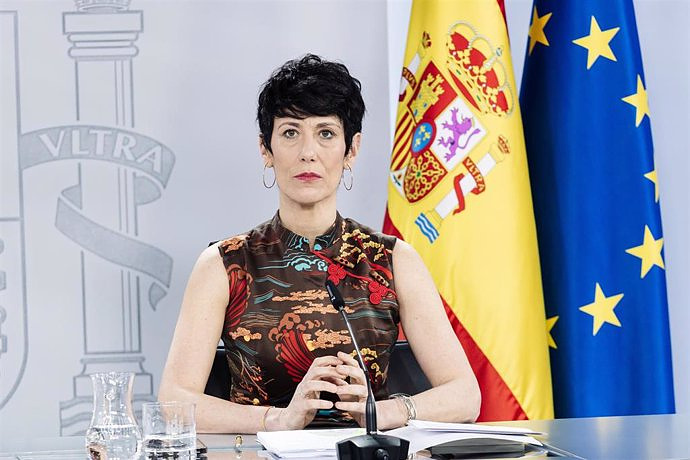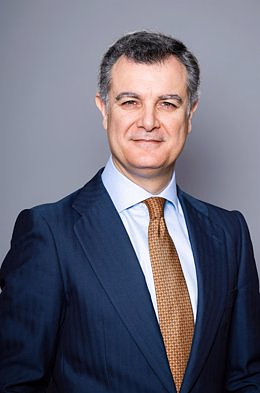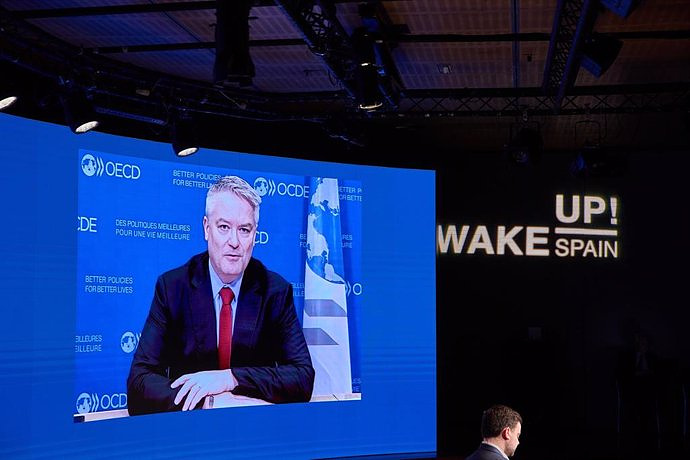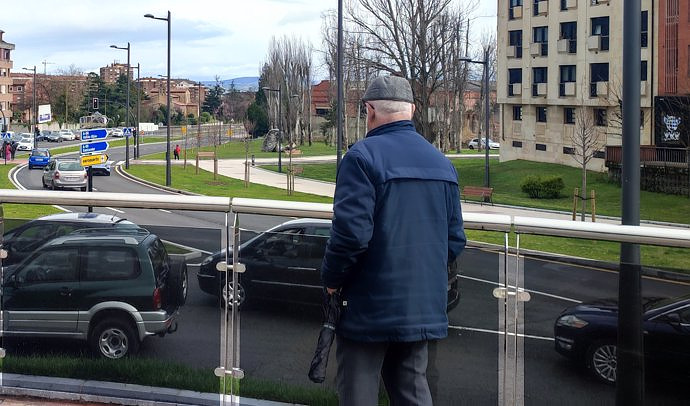Conservatives and progressives designate their respective interlocutors
MADRID, 12 Sep. (EUROPA PRESS) -
The members of the General Council of the Judiciary (CGPJ) have taken the first step to open the negotiations aimed at appointing their two magistrates of the Constitutional Court (TC) by designating the interlocutors of progressives and conservatives for these contacts, despite which the sources consulted by Europa Press stress that it is unlikely that the September 13 deadline will be met.
On the part of the so-called conservative current, the talks will be led by members José Antonio Ballestero and Carmen Llombart, while Álvaro Cuesta, Rafael Mozo and Roser Bach will be the voice of the progressive wing, according to the aforementioned sources. It is expected that this Monday they will contact each other to establish how the dialogue should develop.
Despite this first step, the sources insist that it is unlikely that an agreement will be reached on the two candidates for the TC within the deadline set by the latest legal reform: September 13.
Time began to run last July, when Congress and the Senate approved a new amendment to the Organic Law of the Judiciary (LOPJ) that gave the CGPJ back its ability to make discretionary appointments in the judicial leadership but only to designate its two candidates. to the court of guarantees, since said reform expressly states that it should be done before this Tuesday.
In this way, the Government, through this parliamentary initiative, amended the first reform of the LOPJ that it carried out in March 2021 with the aim of forcing the renewal of the governing body of the judges, prohibiting the appointment of magistrates for the high courts while he was in office, a situation in which he has been for almost four years.
The need for this 'counter-reform' arose on June 12, when the mandate of four of the twelve magistrates of the TC expired --its president, Pedro González-Trevijano; the vice president, Juan Antonio Xiol; and Antonio Narváez and Santiago Martínez-Vares--, because it is the third that the Constitution commissions the Government and CGPJ to renew.
Faced with the impossibility, due to the first reform, that the Council could fulfill its part, the Executive weighed appointing its two candidates to the TC without waiting for the CGPJ, although the legal sources consulted by this Europa Press cast doubts on the legal possibility of that those nominated by Moncloa can take office without waiting for those of the governing body of the judges.
Although the legal impediment for the CGPJ to fulfill its obligation disappeared with said 'counter-reform', the obstacles to undertake the partial renewal of the TC have now arisen from the Council itself.
As soon as this second reform was approved, the president of the CGPJ, Carlos Lesmes, convened an extraordinary plenary session for September 8, urging the 18 members that currently comprise it to take advantage of this conclave to appoint their duo for the Constitutional.
However, the "disaffection" that Lesmes himself has recognized generated among the members by the Government's decision to enable the Council to make appointments but only for the TC led the so-called conservative bloc to threaten to refuse to make such appointments.
This plan of the 'hard core' would make appointments impossible because the candidates need to add a reinforced majority of three-fifths, that is, twelve votes and at the moment they would only have the eight that the progressive wing brings together, so they would also have to support them four conservatives.
Just a week ago, within the framework of the inauguration of the new attorney general, Lesmes warned that he would not consent to "a CGPJ in absentia" because the nomination of two candidates for the TC is an obligation that the Constitution imposes on the Council.
Just 24 hours later, on Tuesday night, the Conservatives held an internal meeting to set their position. Thus, they decided to "defend institutionality in any case", which implies reaching "duly consensual agreements", sources familiar with the meeting informed Europa Press.
In this way, the two candidates for the TC were opened to agree, although with some conditions: first establish the "rules of the game" - how to proceed for the proposal and the vote - and respect "the Council's decision times".
In the plenary session last Thursday, the conservatives offered this 'modus operandi' to the progressives and they accepted, in a debate that took place with a "good atmosphere" but without any mention of specific names to occupy two of the four seats at stake. in the court of guarantees, according to the sources consulted.
The main point of the protocol illuminated by the CGPJ is that the Plenary will not meet again until there are two selected candidates, although once convened other candidates may apply.
This Plenary Session may be convened by Lesmes on its own initiative or at the request of at least five members and, according to the internal regulations of the CGPJ, it could be convened for September 13, although the aforementioned sources emphasize that it is unlikely.

 Exploring Cardano: Inner Workings and Advantages of this Cryptocurrency
Exploring Cardano: Inner Workings and Advantages of this Cryptocurrency Seville.- Economy.- Innova.- STSA inaugurates its new painting and sealing hangar in San Pablo, for 18 million
Seville.- Economy.- Innova.- STSA inaugurates its new painting and sealing hangar in San Pablo, for 18 million Innova.- More than 300 volunteers join the Andalucía Compromiso Digital network in one month to facilitate access to ICT
Innova.- More than 300 volunteers join the Andalucía Compromiso Digital network in one month to facilitate access to ICT Innova.-AMP.- Ayesa acquires 51% of Sadiel, which will create new technological engineering products and expand markets
Innova.-AMP.- Ayesa acquires 51% of Sadiel, which will create new technological engineering products and expand markets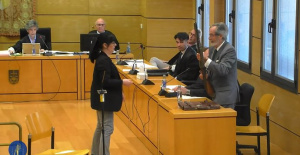 The Ciudad Real Court sentences the man who killed a thief with two shots in his home to 6 years
The Ciudad Real Court sentences the man who killed a thief with two shots in his home to 6 years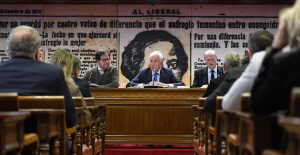 PP and PSOE clash in the Senate over Koldo's appearance after a socialist writing on a work plan
PP and PSOE clash in the Senate over Koldo's appearance after a socialist writing on a work plan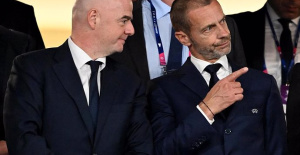 FIFA and UEFA warn that "the protection and institutional stability of the RFEF must be prioritized"
FIFA and UEFA warn that "the protection and institutional stability of the RFEF must be prioritized" The parties close the Basque election campaign
The parties close the Basque election campaign How Blockchain in being used to shape the future
How Blockchain in being used to shape the future Not just BTC and ETH: Here Are Some More Interesting Coins Worth Focusing on
Not just BTC and ETH: Here Are Some More Interesting Coins Worth Focusing on Valencia displays its "innovative and technological potential" at the Emerge Americas event in Miami
Valencia displays its "innovative and technological potential" at the Emerge Americas event in Miami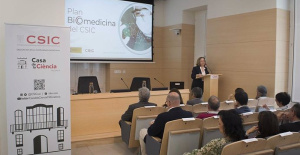 The CSIC incorporates the challenges of robotics, nanotechnology and AI in the new strategic plan for biomedicine
The CSIC incorporates the challenges of robotics, nanotechnology and AI in the new strategic plan for biomedicine Innovation allocates 9.1 million to train 74,000 people and guarantee digital inclusion
Innovation allocates 9.1 million to train 74,000 people and guarantee digital inclusion LIFE SPOT manages to develop new green treatments that eliminate groundwater contamination
LIFE SPOT manages to develop new green treatments that eliminate groundwater contamination A million people demonstrate in France against Macron's pension reform
A million people demonstrate in France against Macron's pension reform Russia launches several missiles against "critical infrastructure" in the city of Zaporizhia
Russia launches several missiles against "critical infrastructure" in the city of Zaporizhia A "procession" remembers the dead of the Calabria shipwreck as bodies continue to wash up on the shore
A "procession" remembers the dead of the Calabria shipwreck as bodies continue to wash up on the shore Prison sentences handed down for three prominent Hong Kong pro-democracy activists
Prison sentences handed down for three prominent Hong Kong pro-democracy activists ETH continues to leave trading platforms, Ethereum balance on exchanges lowest in 3 years
ETH continues to leave trading platforms, Ethereum balance on exchanges lowest in 3 years Investors invest $450 million in Consensys, Ethereum incubator now valued at $7 billion
Investors invest $450 million in Consensys, Ethereum incubator now valued at $7 billion Alchemy Integrates Ethereum L2 Product Starknet to Enhance Web3 Scalability at a Price 100x Lower Than L1 Fees
Alchemy Integrates Ethereum L2 Product Starknet to Enhance Web3 Scalability at a Price 100x Lower Than L1 Fees Mining Report: Bitcoin's Electricity Consumption Declines by 25% in Q1 2022
Mining Report: Bitcoin's Electricity Consumption Declines by 25% in Q1 2022 Oil-to-Bitcoin Mining Firm Crusoe Energy Systems Raised $505 Million
Oil-to-Bitcoin Mining Firm Crusoe Energy Systems Raised $505 Million Microbt reveals the latest Bitcoin mining rigs -- Machines produce up to 126 TH/s with custom 5nm chip design
Microbt reveals the latest Bitcoin mining rigs -- Machines produce up to 126 TH/s with custom 5nm chip design Bitcoin's Mining Difficulty Hits a Lifetime High, With More Than 90% of BTC Supply Issued
Bitcoin's Mining Difficulty Hits a Lifetime High, With More Than 90% of BTC Supply Issued The Biggest Movers are Near, EOS, and RUNE during Friday's Selloff
The Biggest Movers are Near, EOS, and RUNE during Friday's Selloff Global Markets Spooked by a Hawkish Fed and Covid, Stocks and Crypto Gain After Musk Buys Twitter
Global Markets Spooked by a Hawkish Fed and Covid, Stocks and Crypto Gain After Musk Buys Twitter Bitso to offset carbon emissions from the Trading Platform's ERC20, ETH, and BTC Transactions
Bitso to offset carbon emissions from the Trading Platform's ERC20, ETH, and BTC Transactions Draftkings Announces 2022 College Hoops NFT Selection for March Madness
Draftkings Announces 2022 College Hoops NFT Selection for March Madness